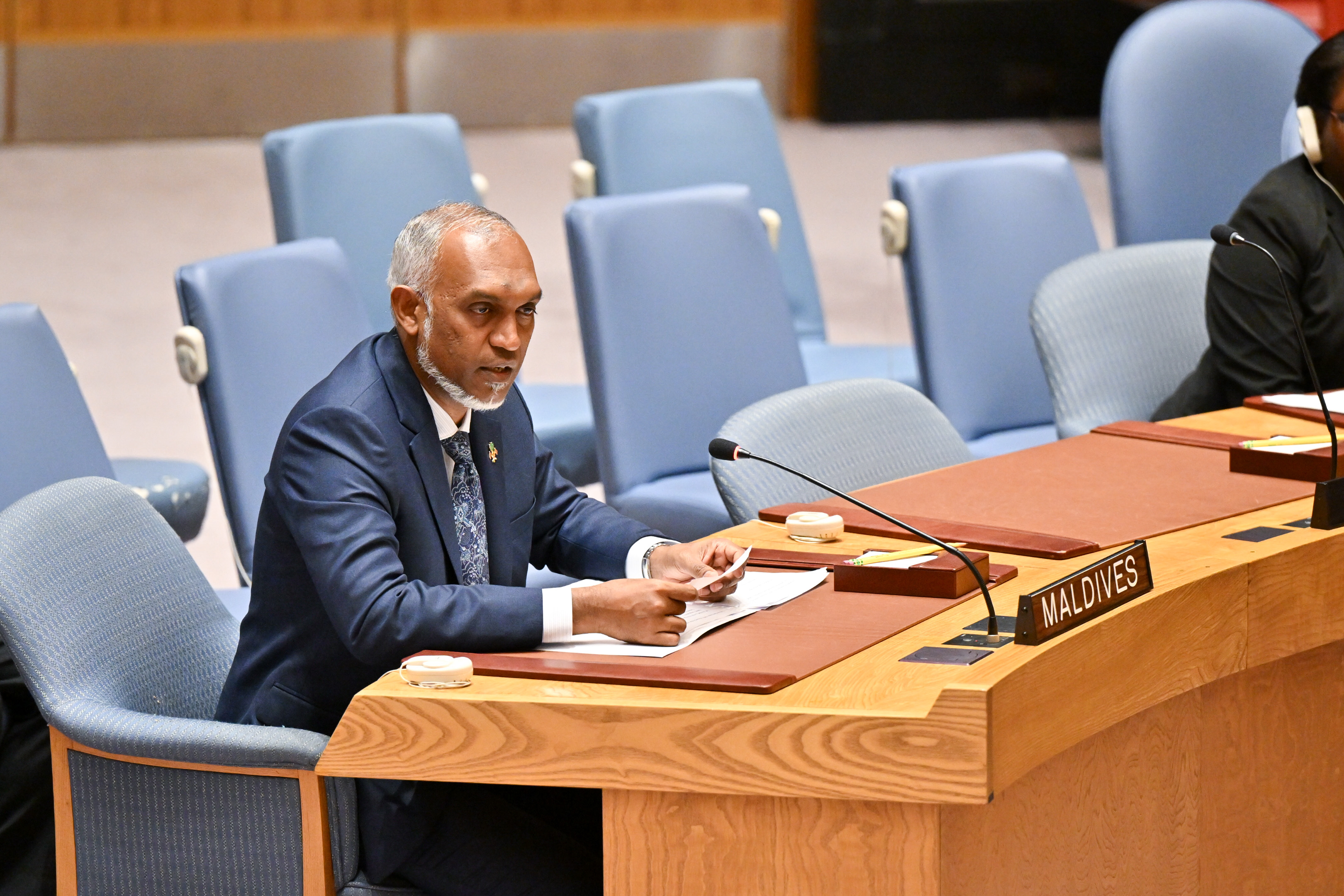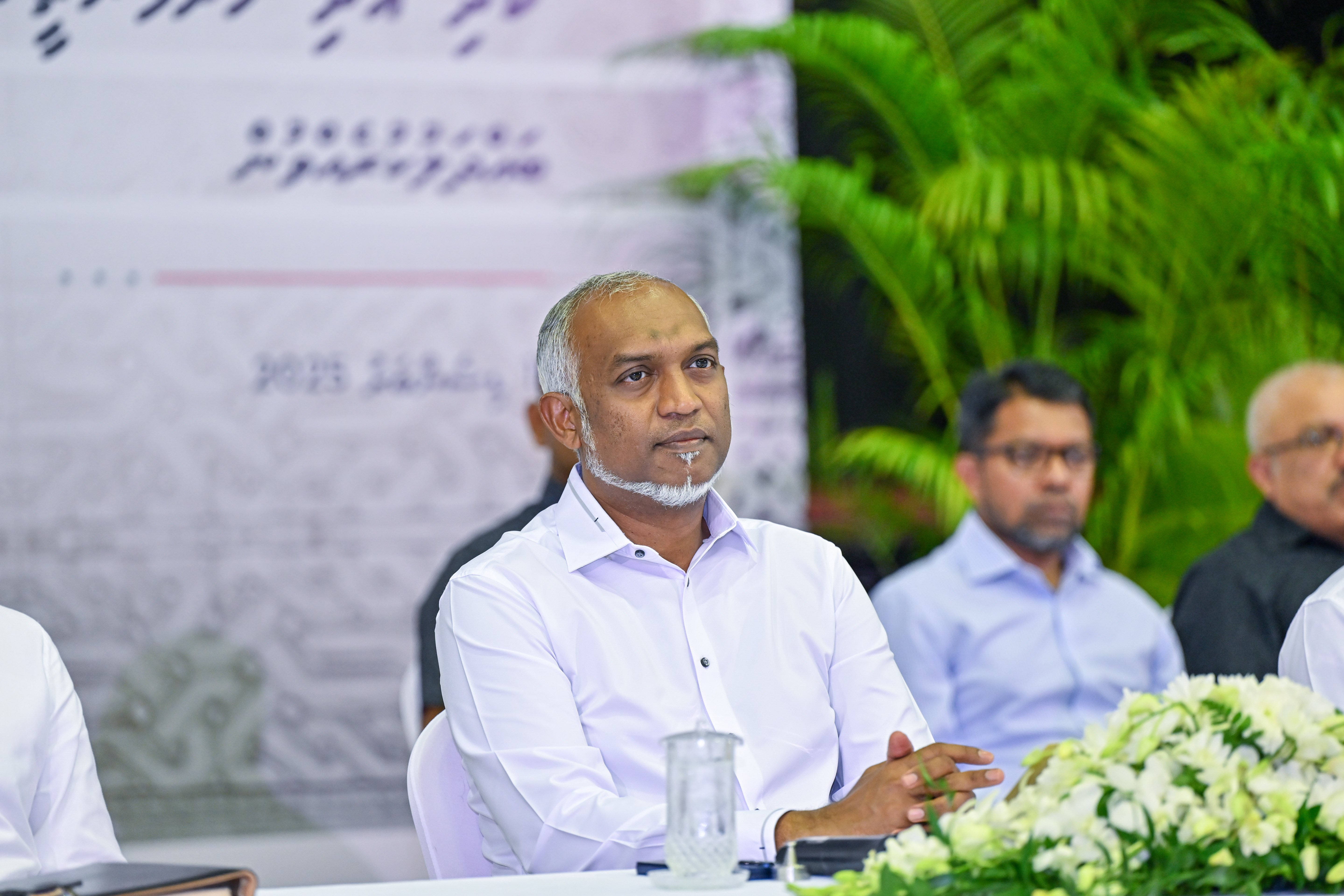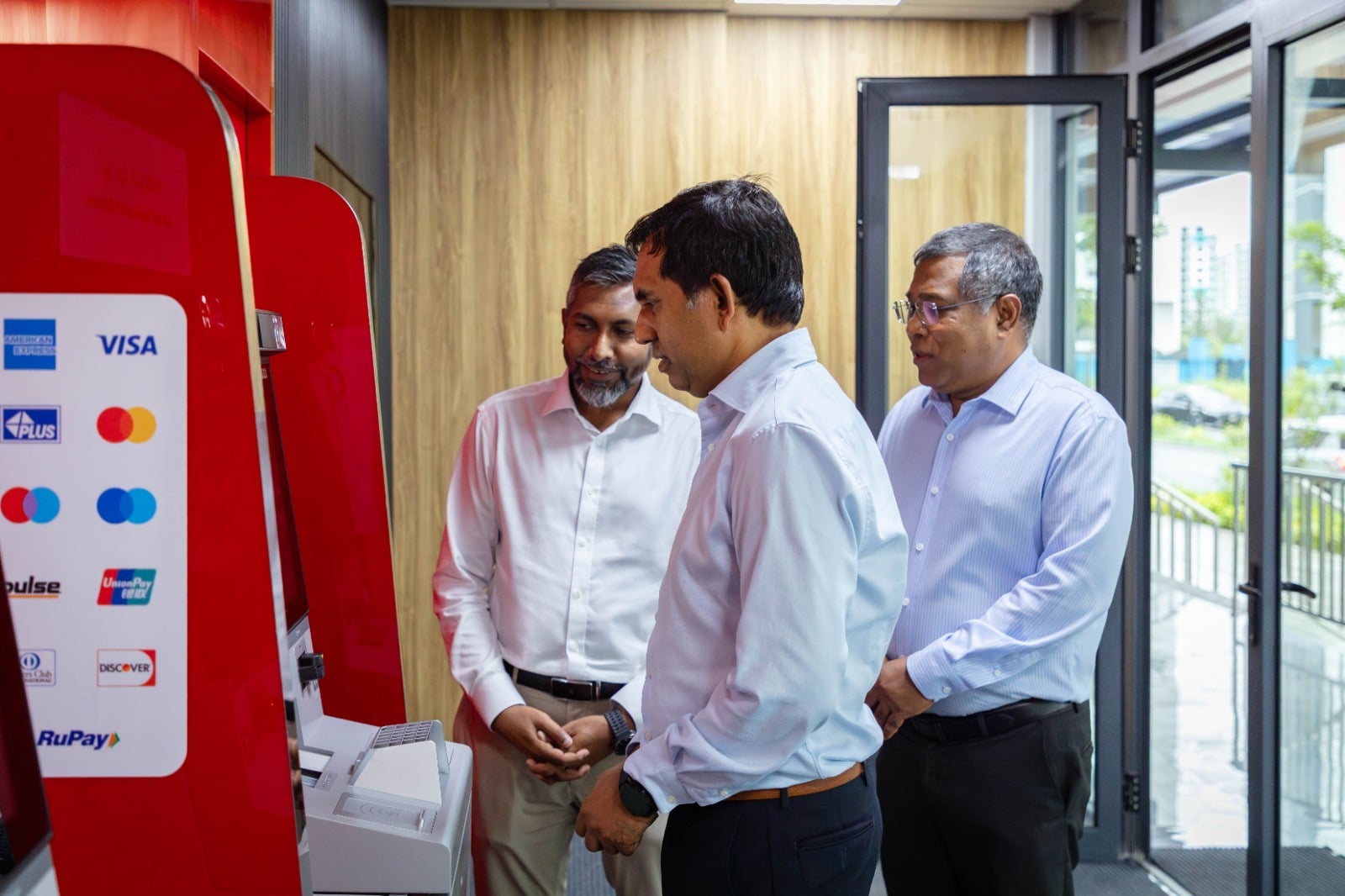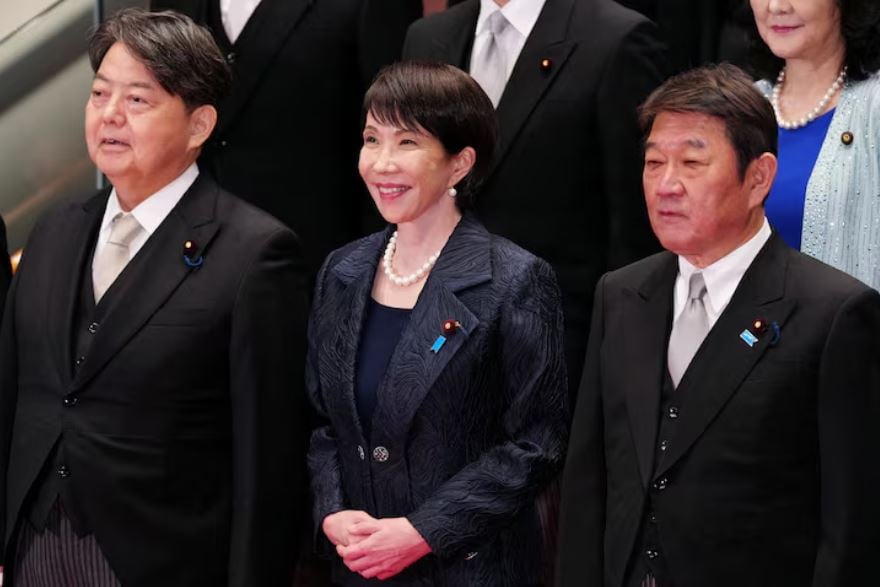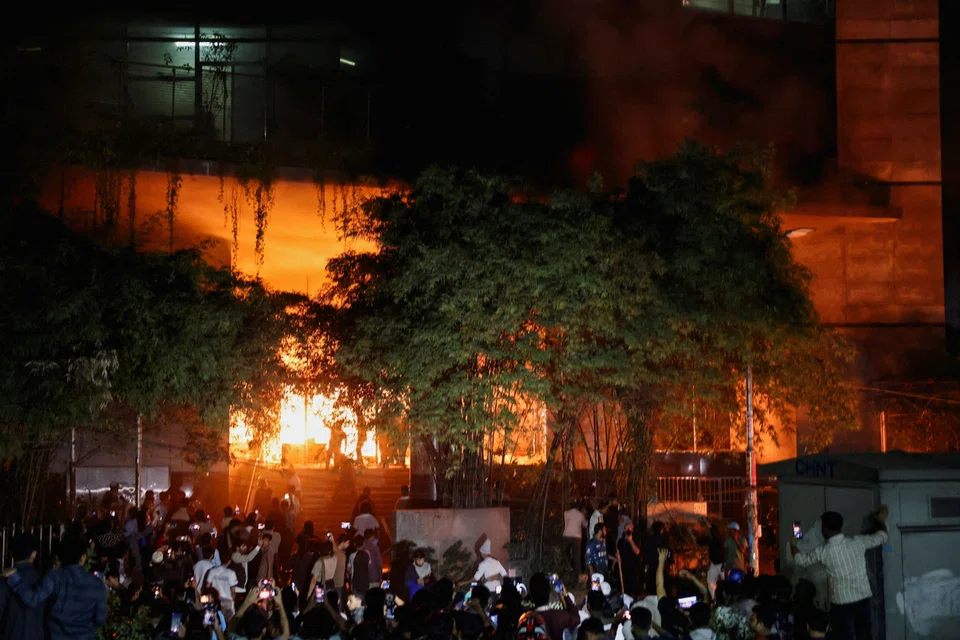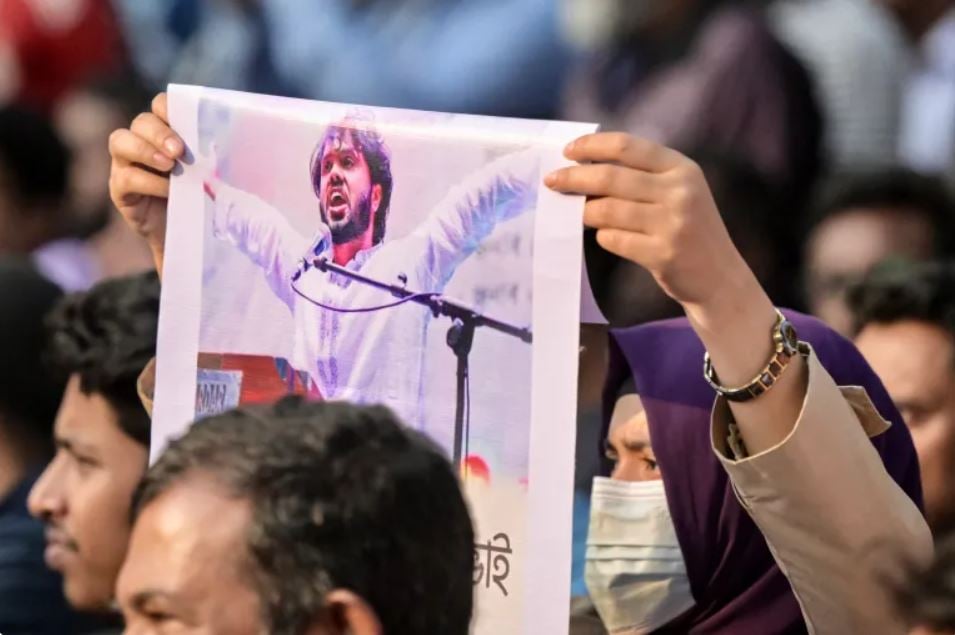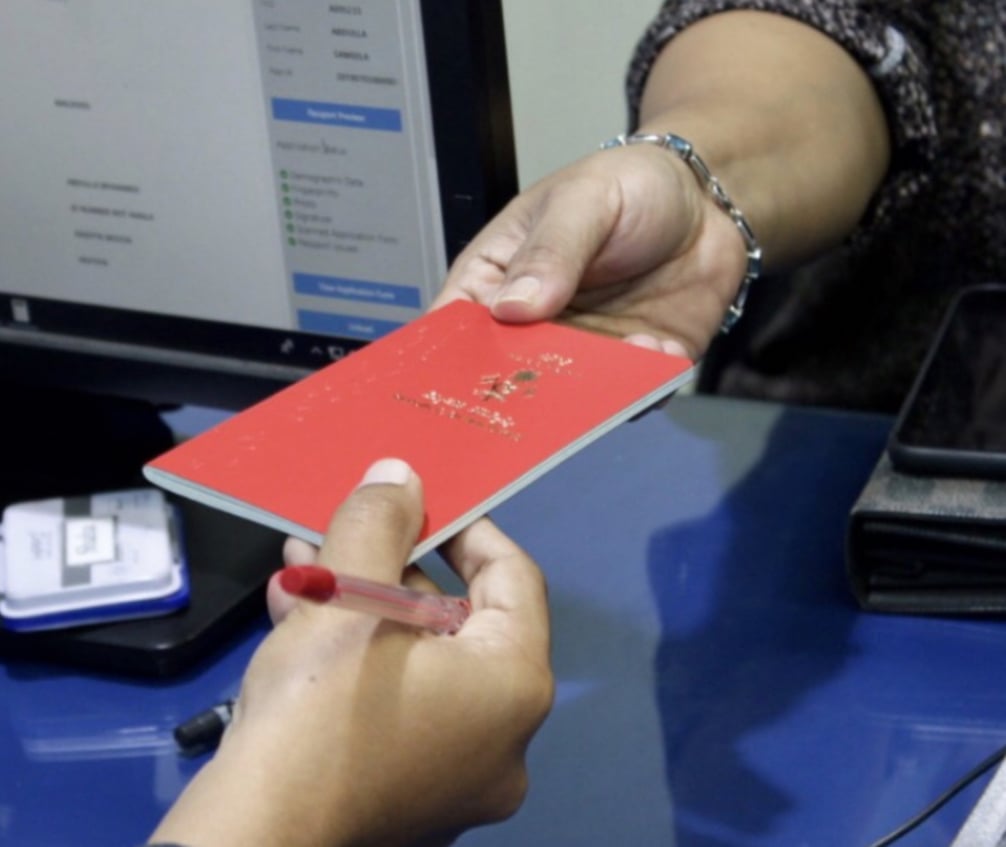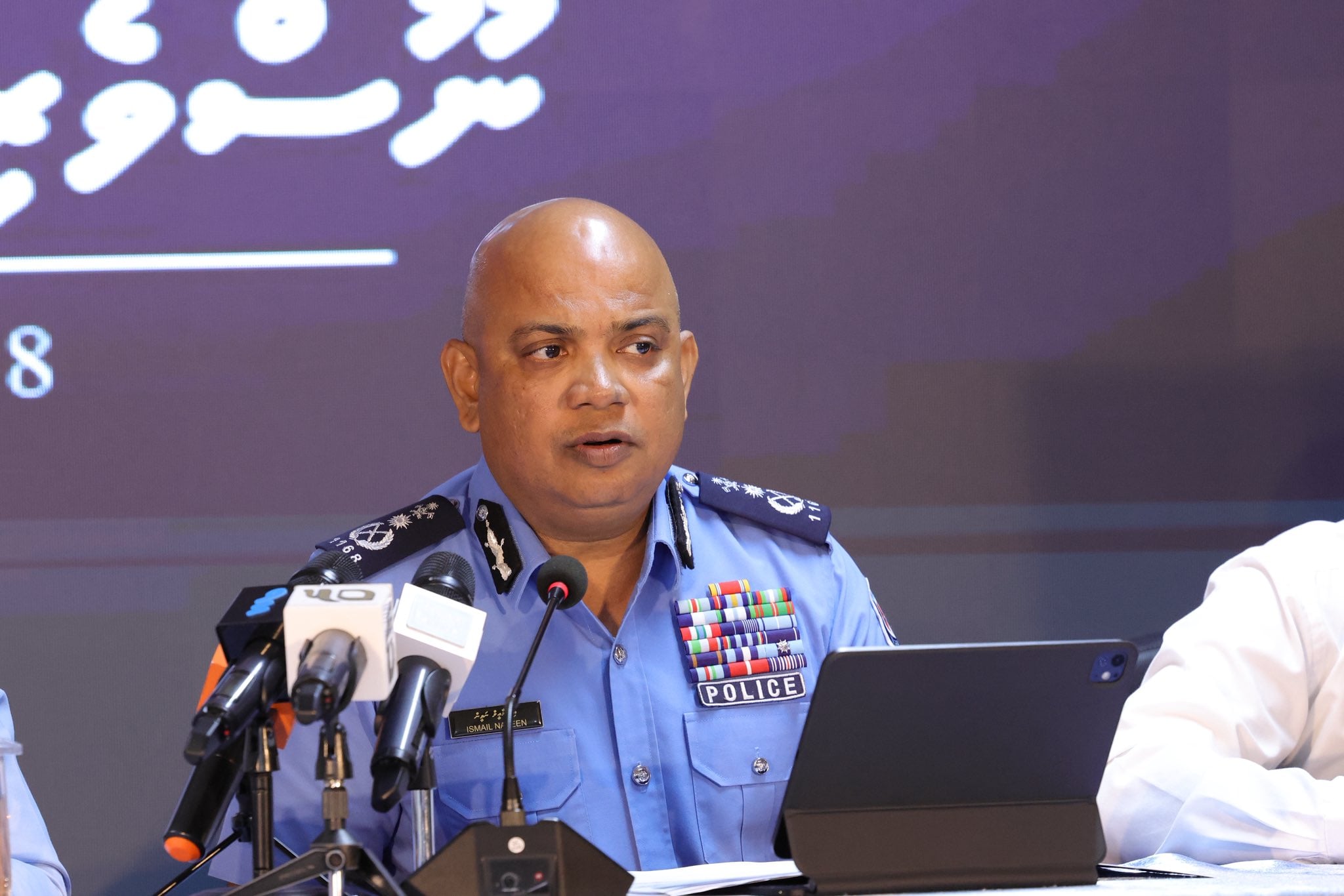New York, September 25, 2024
In a landmark speech before the United Nations Security Council, President His Excellency Dr. Mohamed Muizzu of the Maldives advocated for significant reforms to the Council's structure, specifically calling for the abolition of the veto power held by its permanent members. This address marks the first time a Maldivian president has spoken at the Security Council since the Maldives became a UN member 59 years ago.
During his address, President Dr. Muizzu highlighted the Council's critical role in maintaining global peace and security, while expressing concern over a growing global mistrust in its effectiveness. He argued that declining faith in the Security Council stems from issues of unequal representation, lack of accountability, and insufficient transparency. To address these concerns, he proposed the initiation of an intergovernmental process that would facilitate text-based negotiations aimed at comprehensive reform. As part of these reforms, he reiterated the Maldives' call for a permanent rotating seat for Small Island Developing States (SIDS).
The President did not shy away from addressing the ongoing global conflicts, stating that a "genocide" is occurring while the Security Council remains unwilling to uphold international law. He criticized the veto power as a significant obstacle to effective decision-making, asserting that it has paralyzed the Council’s ability to intervene in issues such as the ongoing situation in Palestine, and has allowed Israel's actions to continue unchecked, resulting in the loss of countless innocent lives.
To combat these pressing challenges, President Dr. Muizzu suggested establishing a mechanism for real-time, innovative solutions from the international community. He stressed the need for the Council to adapt to non-traditional security threats, including those posed by technology, and to enhance its responsiveness to the needs of the people it serves.
In closing, the President reminded the Security Council of its foundational mission, which centers on establishing a world order rooted in justice. He poignantly remarked that this mission is currently under threat, symbolized by the increasing numbers of civilians, aid workers, UN personnel, and journalists who have lost their lives amidst global turmoil. President Muizzu’s address underscored the urgency for reforming the UN Security Council to ensure it meets the challenges of today’s world effectively.
His remarks were delivered during the UN Security Council's High-level Open Debate on ‘Leadership for Peace: United in Respect of the UN Charter, in Search of a Secure Future,’ held at UN Headquarters in New York.
In a landmark speech before the United Nations Security Council, President His Excellency Dr. Mohamed Muizzu of the Maldives advocated for significant reforms to the Council's structure, specifically calling for the abolition of the veto power held by its permanent members. This address marks the first time a Maldivian president has spoken at the Security Council since the Maldives became a UN member 59 years ago.
During his address, President Dr. Muizzu highlighted the Council's critical role in maintaining global peace and security, while expressing concern over a growing global mistrust in its effectiveness. He argued that declining faith in the Security Council stems from issues of unequal representation, lack of accountability, and insufficient transparency. To address these concerns, he proposed the initiation of an intergovernmental process that would facilitate text-based negotiations aimed at comprehensive reform. As part of these reforms, he reiterated the Maldives' call for a permanent rotating seat for Small Island Developing States (SIDS).
The President did not shy away from addressing the ongoing global conflicts, stating that a "genocide" is occurring while the Security Council remains unwilling to uphold international law. He criticized the veto power as a significant obstacle to effective decision-making, asserting that it has paralyzed the Council’s ability to intervene in issues such as the ongoing situation in Palestine, and has allowed Israel's actions to continue unchecked, resulting in the loss of countless innocent lives.
To combat these pressing challenges, President Dr. Muizzu suggested establishing a mechanism for real-time, innovative solutions from the international community. He stressed the need for the Council to adapt to non-traditional security threats, including those posed by technology, and to enhance its responsiveness to the needs of the people it serves.
In closing, the President reminded the Security Council of its foundational mission, which centers on establishing a world order rooted in justice. He poignantly remarked that this mission is currently under threat, symbolized by the increasing numbers of civilians, aid workers, UN personnel, and journalists who have lost their lives amidst global turmoil. President Muizzu’s address underscored the urgency for reforming the UN Security Council to ensure it meets the challenges of today’s world effectively.
His remarks were delivered during the UN Security Council's High-level Open Debate on ‘Leadership for Peace: United in Respect of the UN Charter, in Search of a Secure Future,’ held at UN Headquarters in New York.





